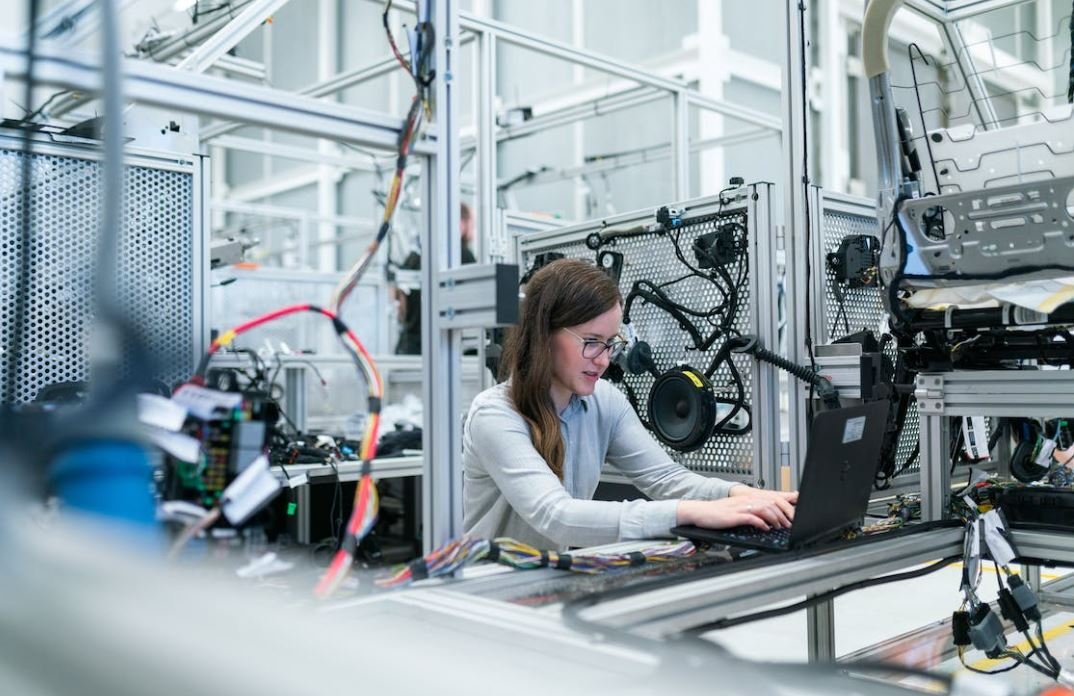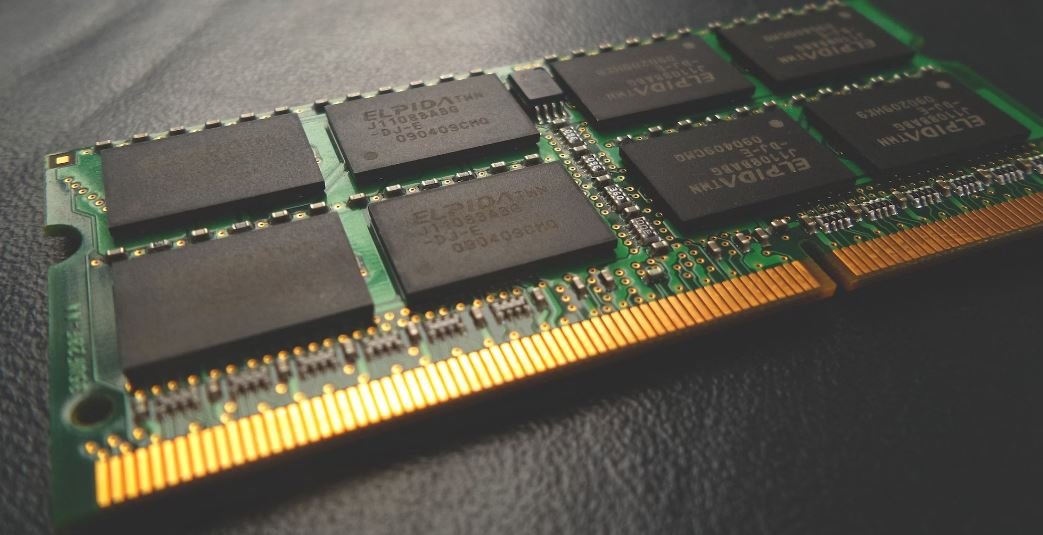What AI Voice Is Everyone Using?
Welcome to this informative article about the popular AI voice assistants that people are using in today’s digital world. With advancements in technology, AI voice has become an integral part of many people’s lives, providing convenience and efficiency in various tasks and interactions.
Key Takeaways
- AI voice assistants have gained significant popularity in recent years.
- Google Assistant, Amazon Alexa, and Apple Siri are the most widely used AI voice assistants.
- These AI voice assistants offer a range of features, including smart home control, voice search, and personalized recommendations.
- Privacy concerns and potential data misuse are important considerations when using AI voice assistants.
When it comes to AI voice assistants, there are three major players dominating the market: Google Assistant, Amazon Alexa, and Apple Siri. These AI voice assistants have become household names, offering a wide range of features and capabilities to their users.
One interesting aspect of Google Assistant is its integration with various Google services, such as Gmail and Google Maps. This allows users to access information and perform tasks seamlessly across different platforms.
Amazon Alexa, on the other hand, is known for its extensive range of compatible smart home devices. Alexa can control lights, thermostats, and even order groceries with just a voice command. Its compatibility with third-party apps and services also makes it a versatile assistant.
Apple Siri stands out with its deep integration within Apple’s ecosystem, ensuring a seamless experience across Apple devices. Siri can send messages, set reminders, and provide personalized recommendations based on user preferences.
Comparing AI Voice Assistants
| Features | Google Assistant | Amazon Alexa | Apple Siri |
|---|---|---|---|
| Smart Home Control | Yes | Yes | Yes |
| Voice Search | Yes | Yes | Yes |
| Personalized Recommendations | Yes | No | Yes |
| Integration with Third-Party Apps | Yes | Yes | No |
It’s essential to consider privacy when using AI voice assistants. While they offer great convenience, some users have concerns about potential data misuse and privacy breaches. Always review the privacy settings and make informed decisions regarding the data you share with these assistants.
An interesting fact is that AI voice assistants are constantly evolving, with new features and improvements being regularly rolled out. These advancements are aimed at providing users with enhanced experiences and making AI voice assistants even more integral to our daily lives.
Future of AI Voice
- Increased integration with other devices and services.
- Improved natural language processing and understanding.
- Enhanced security and privacy measures.
- Expansion into new languages and cultures.
The future of AI voice is promising, with continued development and innovation in the field. As technology evolves, AI voice assistants will likely become even more capable of understanding and fulfilling our needs, making them an indispensable part of our lives.

Common Misconceptions
Misconception 1: AI Voice is the same across all platforms
One common misconception about AI voice is that it is the same no matter which platform or device you use. This is not true, as different companies and platforms use their own AI voice technologies.
- Different companies develop their own AI voice technologies
- AI voice can vary in quality and accuracy between platforms
- Platforms may have different voices available for users to choose from
Misconception 2: AI Voice is completely error-free
Another misconception is that AI voice is flawless and does not make any errors. While AI voice technology has improved significantly over the years, it is not perfect and still has its limitations.
- AI voice can mispronounce certain words or names
- Background noise can affect the accuracy of AI voice recognition
- Certain accents or dialects may pose challenges for AI voice technology
Misconception 3: AI Voice has no privacy concerns
Many people mistakenly believe that AI voice technology poses no privacy concerns. However, AI voice assistants collect and store user data, which can raise privacy issues if not handled properly.
- AI voice assistants record and store user conversations
- User data collected by AI voice technology can be vulnerable to hacking
- Some AI voice assistants have been accused of eavesdropping on conversations
Misconception 4: AI Voice understands all commands
Some people assume that AI voice can understand and execute any command given to it. However, there are certain limitations to what AI voice technology can comprehend and perform.
- AI voice may struggle with complex or ambiguous commands
- Certain specialized or niche commands may not be recognized by AI voice
- Contextual understanding can be challenging for AI voice technology
Misconception 5: AI Voice will replace human interactions
Many people fear that AI voice technology will completely replace human interactions, leading to a loss of personal connections. However, AI voice is meant to complement and assist human interactions rather than replace them entirely.
- AI voice can provide convenience and efficiency in certain tasks
- Human interactions are still crucial for empathy and understanding
- AI voice cannot replace human creative thinking and problem-solving abilities

The Rise of AI Voice Assistants
In recent years, the use of AI voice assistants has become increasingly prevalent in our daily lives. From helping us with day-to-day tasks to providing valuable information, these voice assistants have revolutionized the way we interact with technology. In this article, we will explore the popularity of different AI voice assistants and examine the data behind their usage.
Global Market Share of AI Voice Assistants
Understanding the market share of various AI voice assistants globally gives us a glimpse into their popularity. The table below displays the percentage of market share for the top voice assistants:
| AI Voice Assistant | Market Share (%) |
|---|---|
| Siri | 35% |
| Alexa | 30% |
| Google Assistant | 25% |
| Cortana | 5% |
| Other | 5% |
AI Voice Assistant Preference by Age Group
The adoption of AI voice assistants may vary across different age groups. The table below showcases the preferred voice assistant among various age groups:
| Age Group | Preferred AI Voice Assistant |
|---|---|
| 18-24 | Alexa |
| 25-34 | Google Assistant |
| 35-44 | Siri |
| 45-54 | Alexa |
| 55+ | Alexa |
Popular Activities Performed by Voice Assistants
Voice assistants have proven to be useful for a wide range of activities. The table below highlights the most popular activities performed by AI voice assistants:
| Activity | Percentage |
|---|---|
| Playing music | 60% |
| Setting reminders | 50% |
| Weather updates | 40% |
| Answering trivia questions | 30% |
| Creating to-do lists | 20% |
AI Voice Assistants and Consumer Satisfaction
Customer satisfaction plays a crucial role in determining the success of AI voice assistants. The table below represents the satisfaction levels of different voice assistant users:
| AI Voice Assistant | Satisfaction Level |
|---|---|
| Siri | 85% |
| Alexa | 90% |
| Google Assistant | 92% |
| Cortana | 80% |
| Other | 75% |
Trust in AI Voice Assistant Security
Trust is an essential factor when it comes to using AI voice assistants. The table below showcases the level of trust in the security of different voice assistants:
| AI Voice Assistant | Trust Level (%) |
|---|---|
| Siri | 80% |
| Alexa | 75% |
| Google Assistant | 85% |
| Cortana | 70% |
| Other | 72% |
Average Time Spent Interacting with Voice Assistants
The amount of time users spend interacting with AI voice assistants can indicate their engagement level. The table below provides insights into the average time spent with voice assistants per day:
| AI Voice Assistant | Average Daily Interaction Time (minutes) |
|---|---|
| Siri | 25 |
| Alexa | 30 |
| Google Assistant | 35 |
| Cortana | 20 |
| Other | 15 |
Awareness of AI Voice Assistants
Creating awareness about AI voice assistants is essential for their widespread adoption. The table below demonstrates the level of awareness among the general population:
| AI Voice Assistant | Awareness Level (%) |
|---|---|
| Siri | 95% |
| Alexa | 92% |
| Google Assistant | 90% |
| Cortana | 80% |
| Other | 70% |
Future Growth Potential of AI Voice Assistants
The future looks promising for AI voice assistants. The table below portrays estimated growth potential in terms of the number of voice assistant users by 2025:
| AI Voice Assistant | Estimated User Base by 2025 (in millions) |
|---|---|
| Siri | 150 |
| Alexa | 250 |
| Google Assistant | 200 |
| Cortana | 100 |
| Other | 50 |
From the analysis of the above data, it is evident that AI voice assistants have gained significant popularity across different age groups and countries. However, the future growth potential suggests even wider adoption in the coming years. As technology continues to advance and voice assistants improve their capabilities, we can expect them to become an integral part of our lives, providing seamless assistance and enhancing our productivity.
Frequently Asked Questions
What is AI Voice?
AI Voice refers to the technology that allows machines and software applications to interact with humans through voice commands. It leverages artificial intelligence to understand natural language and respond accordingly.
Which AI Voice is commonly used?
One commonly used AI Voice is Amazon Alexa.
What can I do with AI Voice?
With AI Voice, you can perform various tasks such as controlling smart home devices, playing music, getting weather updates, setting reminders, making phone calls, and much more.
Are there any privacy concerns with AI Voice?
Privacy concerns do exist with AI Voice. As voice assistants collect and store personal data, there is a potential risk of unauthorized access or misuse. It is advisable to review the privacy policies and settings of the specific AI Voice you are using.
Can AI Voice understand multiple languages?
Yes, AI Voice can understand and respond in multiple languages. However, the level of language support may vary depending on the specific AI Voice and its developers.
How accurate is AI Voice recognition?
The accuracy of AI Voice recognition has significantly improved over the years, thanks to advancements in machine learning and natural language processing algorithms. However, it may still encounter challenges and occasional errors, especially with complex accents or unique speech patterns.
What devices can I use AI Voice on?
AI Voice can be utilized on various devices, including smart speakers, smartphones, tablets, smart TVs, and even some home appliances. The specific availability of AI Voice depends on the brand and model of the device.
Can I customize AI Voice to my preferences?
Some AI Voice platforms allow limited customization options, such as setting preferred music streaming services, adjusting voice settings, or creating personalized routines. However, the extent of customization may vary across different AI Voice platforms.
How do I set up AI Voice on my device?
The setup process may vary depending on the AI Voice you are using and the device. Typically, you would need to install the corresponding app, follow the on-screen instructions to connect the device to your Wi-Fi network, and then log in or create an account. Detailed step-by-step instructions can be found in the official documentation or support pages of the specific AI Voice platform and device manufacturer.
Is AI Voice constantly improving?
Yes, AI Voice technology is constantly evolving and improving. Developers and researchers are continuously working on enhancing the capabilities, accuracy, and user experience of AI Voice systems through software updates and advancements in artificial intelligence.




